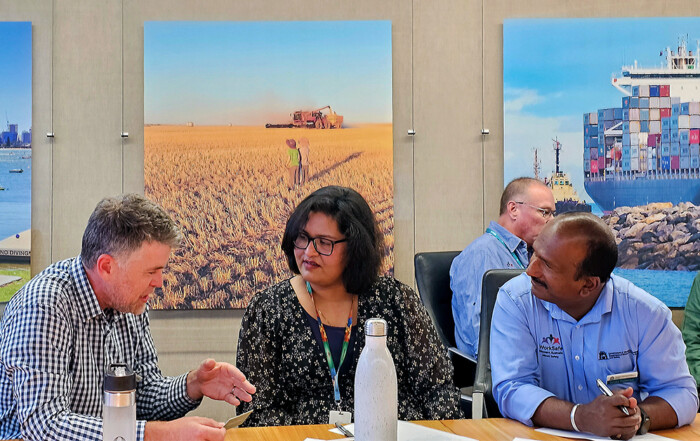
On the Move: What employees are seeking in their next roles
More employees than ever before are hitting the job market. So, what are they looking for when they get there?
Movement is a part of any healthy career and can be an exciting opportunity to learn new industries, to deepen previously untouched skills, and to make valuable connections. More than this though, the contemporary job seeker seeks roles that deliver not only on their primary needs, but that provide the opportunity for a positive career and life experience.
Ultimately, the job seeker of the present market is seeking meaning, purpose and alignment, with a sense of satisfaction. Employees want to be appreciated for their skills and to have more autonomy and opportunity to contribute. In exchange, organisations expect to receive engaged, empowered and job-ready employees who are willing to commit and to ride out the storms. In order for expectations on both sides to be met, intentional recruiting processes, strong EVP and participatory work design practices are recommended to maximise the opportunity for change.
Gallup surveyed over 13,000 employees, asking what they see as the most important factors when deciding on a new employer. Overwhelmingly, the top answer was a significant increase in income or benefits – perhaps unsurprising, given the cost of the pandemic and rising inflation. However, looking beneath the surface, this may have more to do with changing attitudes towards work and a significant shift in the value we place on our time.
The pandemic has shifted not only practicalities, but ways of seeing the world – people have realised the value of time and freedom and prize both more highly given recent experiences. What employees are willing to do for money has changed – as has the expected compensation for contributions to work. Bearing in mind though, in a hot market, employees realise their skills are in high demand and put a premium on their salary expectations. Whether or not this subsides as the market cools remains to be seen.
Coming in second in the Gallup survey was work-life balance and personal wellbeing – again it is no surprise that individuals are feeling stressed and overwhelmed but the responsibility for wellbeing has never before been such a significant factor in the job market.
With new flexible working options and supportive benefits becoming the norm, the expectation has been raised for balance and wellbeing to be intrinsic to any strong EVP. This means that individual wellbeing is becoming more and more the responsibility of the employer. With the breaking down of boundaries between work and home comes a new territory in emotional health, for which employers have to be prepared to play a significant role.
Diversity and individuation also scored highly, demonstrating the continuing importance of workplace cultures that welcome differing backgrounds and perspectives and are representative of contemporary societal values. Job security was also an important factor for those making a move – organisations should remember that certainty in changing times can have a stabilising effect and that supporting wellbeing sets the conditions for optimal performance.
Finally, job seekers valued the ability to do what they do best, highlighting that development continues to play a major role. Employees want to be enabled to use the unique skills that they possess, to make greater impact and to grow from strength to strength. Work is no longer simply a means of paying the bills, but a vehicle through which self-actualisation can be achieved. As Gallup suggests, “workers who aren’t allowed to use their strengths very often seek jobs where they can; workers who do get to use their strengths seek out jobs where they get to use them even more.”
Organisations looking to hire should consider if their EVP is holistic and contemporary, with significant attention paid to current values. For organisations that can carry salary increase, now is the time to show deep pockets – not just for potential employees, but by way of reward to those who stay in a time of opportunity. For employers seeking to convey their appreciation in non-monetary forms, flexible work practices continue to be important but only contribute in one way to a warm and supportive culture.
To be competitive as an employer of choice, wellbeing must be embedded in the business, with a genuine commitment to supporting work-life balance, to understanding individual needs and to demonstrating emotional intelligence and psychological safety from leadership down to staff level. Also important is communicating a vision and sense of purpose and allowing employees to add value over and beyond previous involvements. Teams that leverage strengths will build trust and cohesion, leading to greater satisfaction for all.
“The job seeker of the present market is seeking meaning, purpose and alignment, with a sense of satisfaction.”






